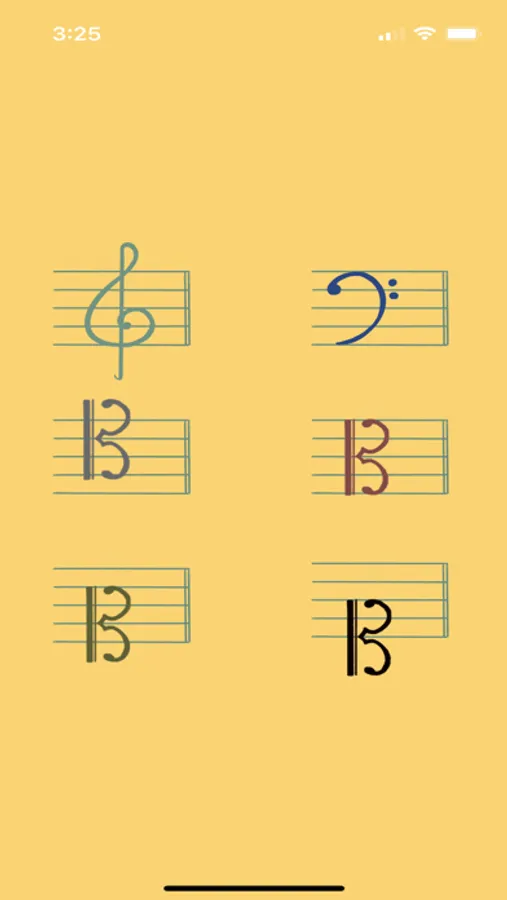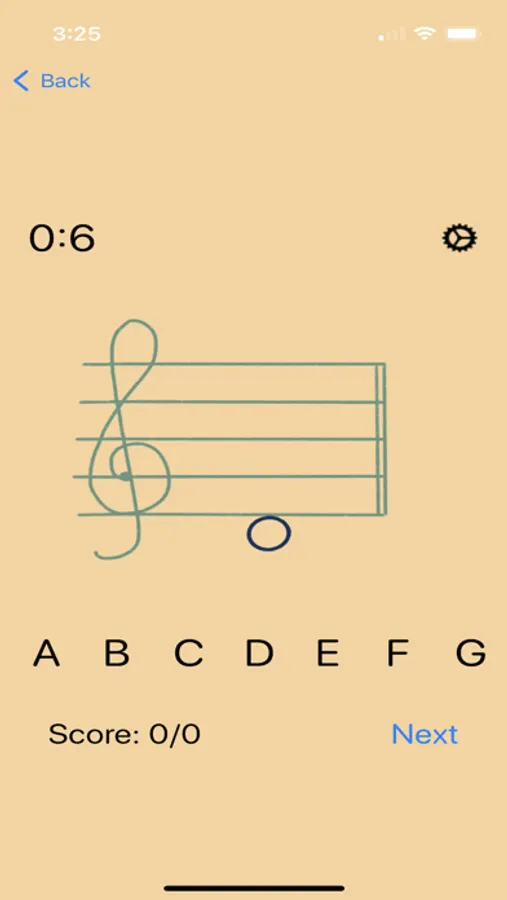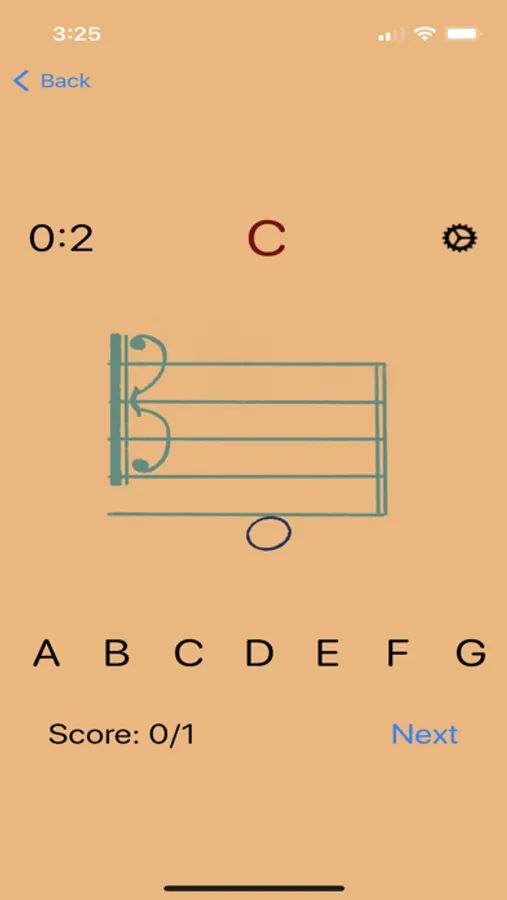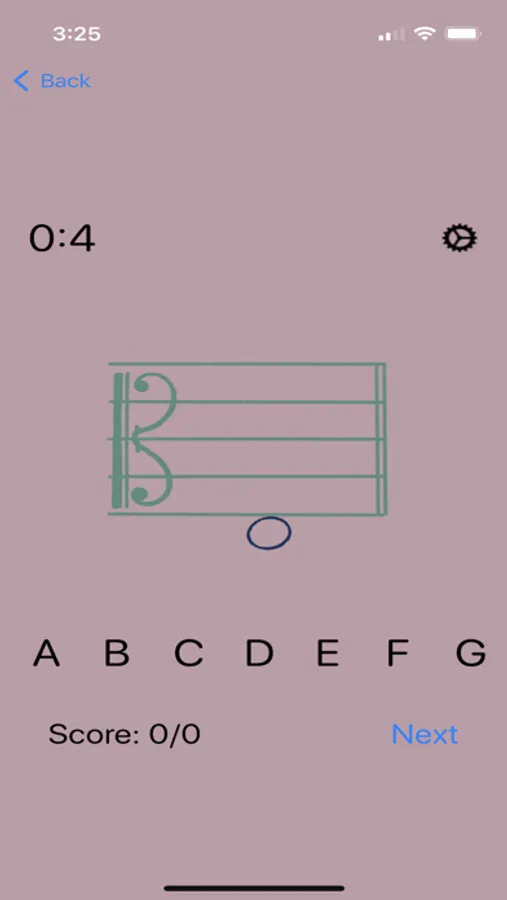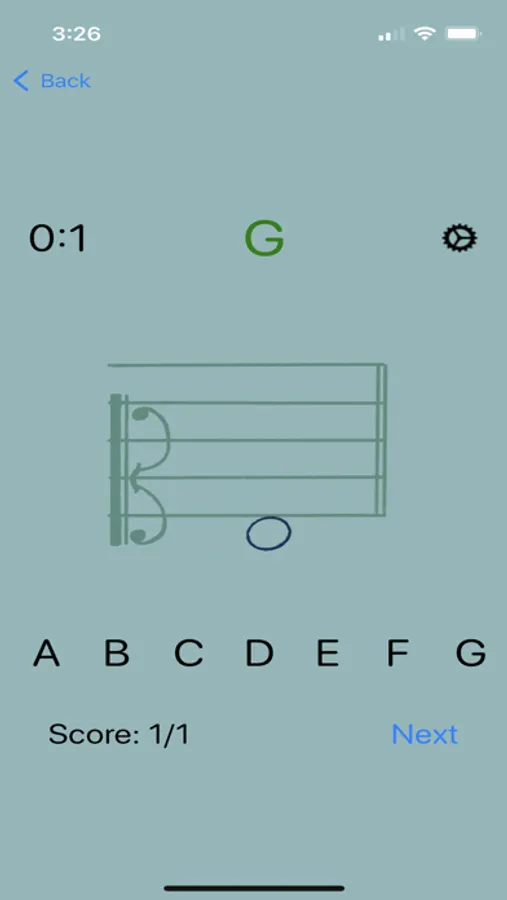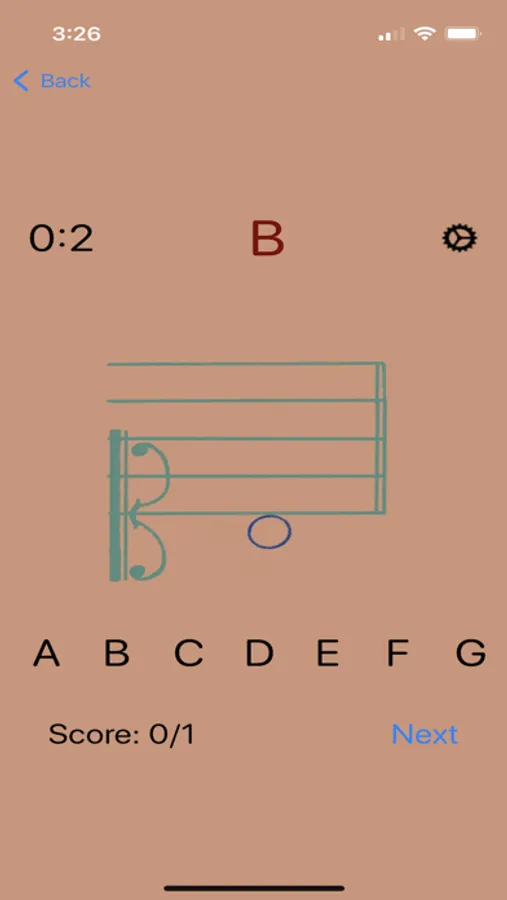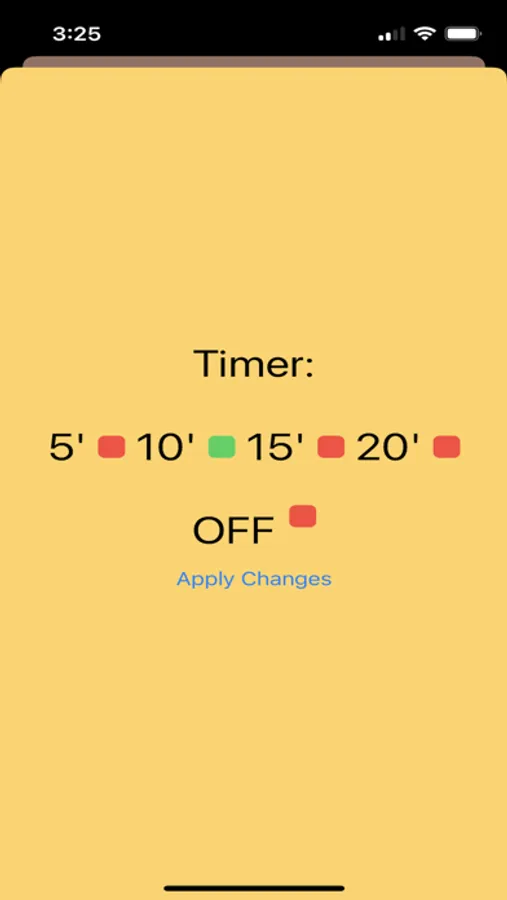About iClef
We created iClef for our students to accelerate and optimize the learning process. iClef helps you learn and practice fundamental notation skills. For sight-readers, iClef is a great tool. Whether you want to learn treble or bass clef or interested in less commonly known clefs like Soprano, and Mezzo Soprano, iClef will help you train your eyes for seamless differentiation of various pitches on the stave.
iClef has six clefs:
Treble:
Treble clef can also be called violin clef, or G clef, because the curl of the clef encircles the line where the note G falls. This clef is used for high-sounding instruments, such as violin, guitar, mandolin, flute, oboe, English horn, clarinet, saxophone, horn, and trumpet. The upper staff of keyboard instruments also use treble clef.
Bass:
Bass clef may also be referred to as F clef, because the note F is found on the line in between the two dots of the clef’s symbol. This clef is used for low-sounding instruments, such as bass guitar, cello, double bass, bassoon, trombone, tuba, and timpani. The bottom staff of keyboard instruments also use bass clef.
Alto:
Alto clef is often called viola clef, or sometimes C clef, since the middle line of the staff is the note C. The viola and the alto trombone are generally the only instruments that use this clef.
Tenor:
Tenor clef is not seen very often; it is occasionally used to represent the upper ranges of the cello, double bass, bassoon, and trombone. Its symbol is identical to the alto clef, but is moved higher on the staff.
Mezzo Soprano:
When the C-clef is placed on the second line of the stave, it is called the mezzo-soprano clef.
The mezzo-soprano clef is specifically popular in Azerbaijan music. It is widely used in music sheets written for Tar. However, it is very rarely used in modern contexts. It was traditionally used for mezzo-soprano voices in operatic roles, notably by composer Claudio Monteverdi. This clef was also used for certain flute parts during renaissance, especially when doubling vocal lines.
Soprano:
When the C-clef is placed on the first line of the stave, it is called the soprano clef.
This clef was used for the right hand of keyboard music (particularly in France; see Bauyn manuscript) as well as in vocal music for sopranos, and sometimes in high viola da gamba parts alongside the alto clef.
iClef has six clefs:
Treble:
Treble clef can also be called violin clef, or G clef, because the curl of the clef encircles the line where the note G falls. This clef is used for high-sounding instruments, such as violin, guitar, mandolin, flute, oboe, English horn, clarinet, saxophone, horn, and trumpet. The upper staff of keyboard instruments also use treble clef.
Bass:
Bass clef may also be referred to as F clef, because the note F is found on the line in between the two dots of the clef’s symbol. This clef is used for low-sounding instruments, such as bass guitar, cello, double bass, bassoon, trombone, tuba, and timpani. The bottom staff of keyboard instruments also use bass clef.
Alto:
Alto clef is often called viola clef, or sometimes C clef, since the middle line of the staff is the note C. The viola and the alto trombone are generally the only instruments that use this clef.
Tenor:
Tenor clef is not seen very often; it is occasionally used to represent the upper ranges of the cello, double bass, bassoon, and trombone. Its symbol is identical to the alto clef, but is moved higher on the staff.
Mezzo Soprano:
When the C-clef is placed on the second line of the stave, it is called the mezzo-soprano clef.
The mezzo-soprano clef is specifically popular in Azerbaijan music. It is widely used in music sheets written for Tar. However, it is very rarely used in modern contexts. It was traditionally used for mezzo-soprano voices in operatic roles, notably by composer Claudio Monteverdi. This clef was also used for certain flute parts during renaissance, especially when doubling vocal lines.
Soprano:
When the C-clef is placed on the first line of the stave, it is called the soprano clef.
This clef was used for the right hand of keyboard music (particularly in France; see Bauyn manuscript) as well as in vocal music for sopranos, and sometimes in high viola da gamba parts alongside the alto clef.
